- Home
- Quizzes
- My Quiz Activity
- Newsletters
- Sports Betting
- MY FAVORITES
- Add Sports/Teams
- SPORTS
-
NFL
- NFL Home
- Arizona Cardinals
- Atlanta Falcons
- Baltimore Ravens
- Buffalo Bills
- Carolina Panthers
- Chicago Bears
- Cincinnati Bengals
- Cleveland Browns
- Dallas Cowboys
- Denver Broncos
- Detroit Lions
- Green Bay Packers
- Houston Texans
- Indianapolis Colts
- Jacksonville Jaguars
- Kansas City Chiefs
- Las Vegas Raiders
- Los Angeles Chargers
- Los Angeles Rams
- Miami Dolphins
- Minnesota Vikings
- New England Patriots
- New Orleans Saints
- New York Jets
- New York Giants
- Philadelphia Eagles
- Pittsburgh Steelers
- San Francisco 49ers
- Seattle Seahawks
- Tampa Bay Buccaneers
- Tennessee Titans
- Washington Commanders
-
MLB
- MLB Home
- Arizona Diamondbacks
- Atlanta Braves
- Baltimore Orioles
- Boston Red Sox
- Chicago White Sox
- Chicago Cubs
- Cincinnati Reds
- Cleveland Guardians
- Colorado Rockies
- Detroit Tigers
- Houston Astros
- Kansas City Royals
- Los Angeles Angels
- Los Angeles Dodgers
- Miami Marlins
- Milwaukee Brewers
- Minnesota Twins
- New York Yankees
- New York Mets
- Oakland Athletics
- Philadelphia Phillies
- Pittsburgh Pirates
- San Diego Padres
- San Francisco Giants
- Seattle Mariners
- St. Louis Cardinals
- Tampa Bay Rays
- Texas Rangers
- Toronto Blue Jays
- Washington Nationals
-
NBA
- NBA Home
- Atlanta Hawks
- Boston Celtics
- Brooklyn Nets
- Charlotte Hornets
- Chicago Bulls
- Cleveland Cavaliers
- Dallas Mavericks
- Denver Nuggets
- Detroit Pistons
- Golden State Warriors
- Houston Rockets
- Indiana Pacers
- Los Angeles Clippers
- Los Angeles Lakers
- Memphis Grizzlies
- Miami Heat
- Milwaukee Bucks
- Minnesota Timberwolves
- New Orleans Pelicans
- New York Knicks
- Oklahoma City Thunder
- Orlando Magic
- Philadelphia 76ers
- Phoenix Suns
- Portland Trail Blazers
- Sacramento Kings
- San Antonio Spurs
- Toronto Raptors
- Utah Jazz
- Washington Wizards
-
NHL
- NHL Home
- Anaheim Ducks
- Arizona Coyotes
- Boston Bruins
- Buffalo Sabres
- Calgary Flames
- Carolina Hurricanes
- Chicago Blackhawks
- Colorado Avalanche
- Columbus Blue Jackets
- Dallas Stars
- Detroit Red Wings
- Edmonton Oilers
- Florida Panthers
- Los Angeles Kings
- Minnesota Wild
- Montreal Canadiens
- Nashville Predators
- New Jersey Devils
- New York Islanders
- New York Rangers
- Ottawa Senators
- Philadelphia Flyers
- Pittsburgh Penguins
- San Jose Sharks
- Seattle Kraken
- St. Louis Blues
- Tampa Bay Lightning
- Toronto Maple Leafs
- Vancouver Canucks
- Vegas Golden Knights
- Washington Capitals
- Winnipeg Jets
- NCAAF
- NCAAM
- Boxing
- Entertainment
- Lifestyle
- Golf
- MMA
- Soccer
- Tennis
- Wrestling
- More Sports
- RESOURCES
- My Account
- YB on Facebook
- YB on Twitter
- YB on Flipboard
- Contact Us
- Privacy Policy
- Terms of Service
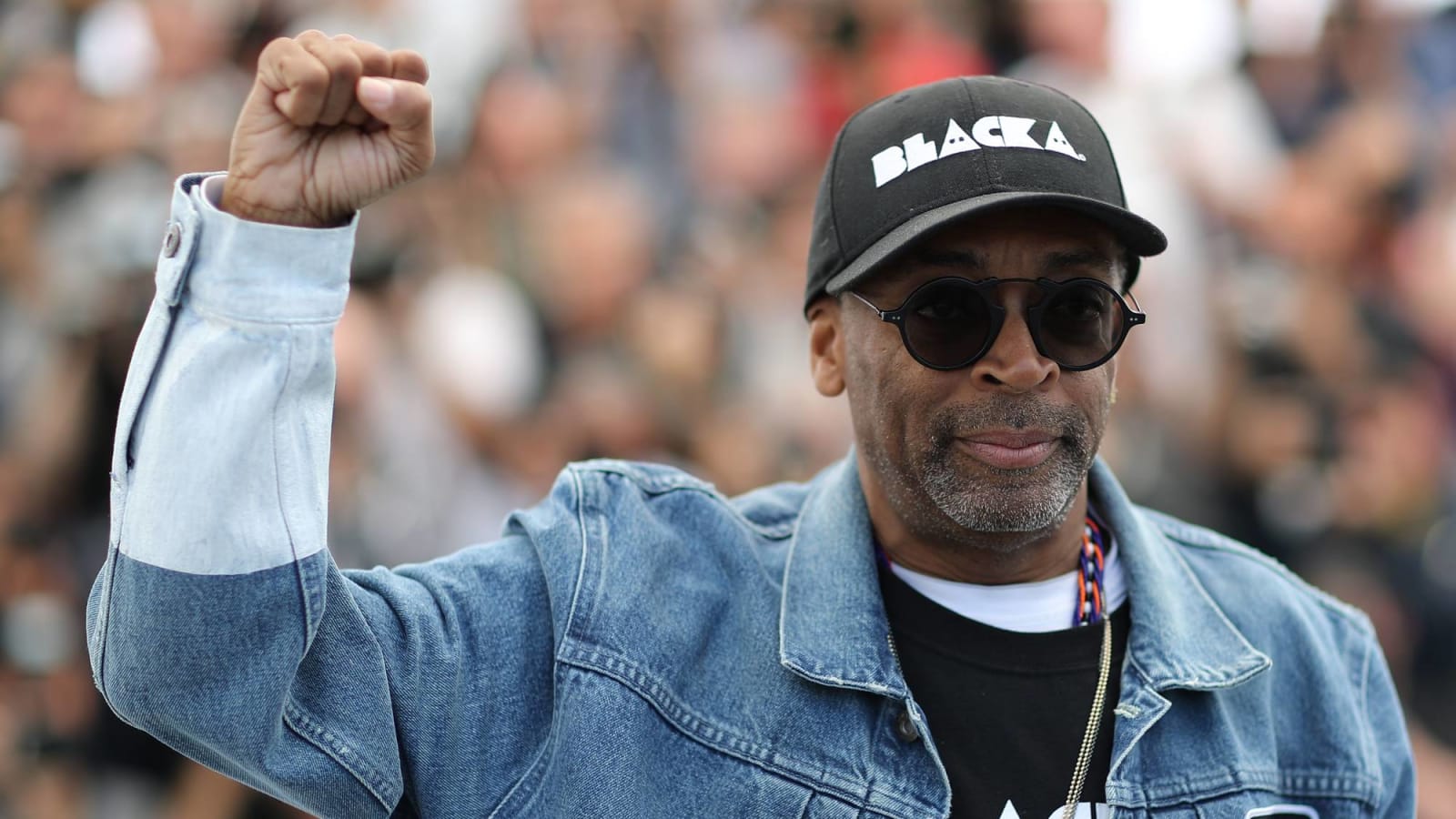
Best screenwriters to never win Best Screenplay
The Academy of Motion Picture Arts and Sciences hands out two screenwriting Oscars a year (for "original" and "adapted" works), but it has still managed to pass over some of the greatest writers in the history of the medium over the last 90 years. As in every other category, there have been some egregious snubs, but in some cases certain brilliant writers simply aren't prolific enough to get nominated more than a couple of times. Either way, this list of unrewarded screenwriters is bound to surprise you.
Paul Thomas Anderson
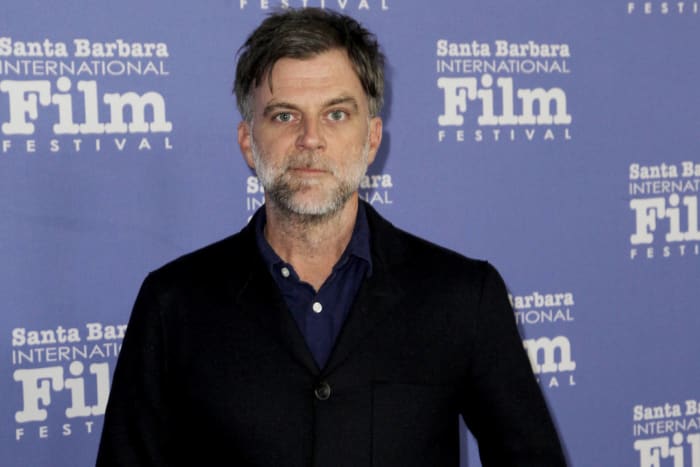
You can quote his screenplays for “Boogie Nights,” “Magnolia,” “There Will Be Blood” and “Inherent Vice” all day long, but all of these scripts fell short on Oscar night. Think he’s got a shot this year with “Phantom Thread?” Think again. You’ve got to be nominated to win, and the film with some of the most deliciously witty (and, again, quotable) banter to pop off the screen in years, isn’t even up for Best Original Screenplay.
Wes Anderson

Wes Anderson earned his first Original Screenplay Oscar nomination in 2002 for “The Royal Tenenbaums,” but he’s yet to make the leap from critics' darling to Academy favorite. As with Richard Linklater, it’s possible that the younger the Academy gets, the better his unique films will fare with voters. It’s also possible that age has nothing to do with Anderson’s appeal. Aside from the stop-motion-animated “Fantastic Mr. Fox” (which inexplicably didn’t get an Adapted Screenplay nomination), it’s difficult to think of an Anderson film that connects for folks with an allergy to his very specific aesthetic.
John Sayles
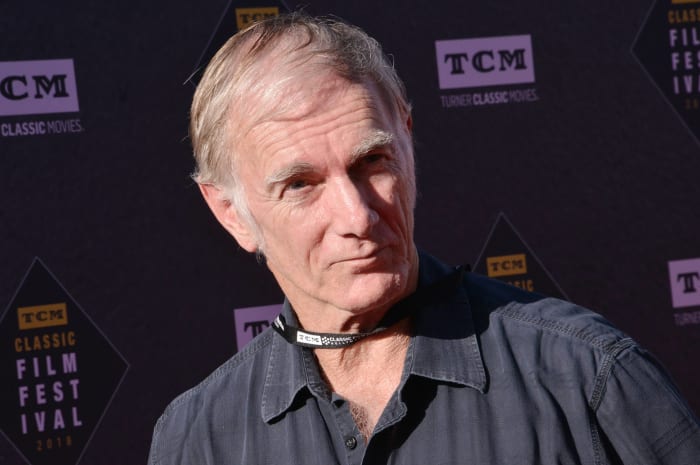
He's a legend of American independent filmmaking and one of the most revered screenwriters working today. But the man who brought us such socially conscious classics as "City of Hope," "Matewan," "Eight Men Out" and "The Brother from Another Planet" has been nominated only twice (for two of his best, "Lone Star" and "Passion Fish") and has gone home empty-handed each time. Given his prolificness as a script doctor (he estimates he's done uncredited rewrites on over 100 screenplays), it's entirely possible he's left his fingerprints on someone else's Oscar triumph. Maybe one day he'll have one to call his own.
Ingmar Bergman

The Swedish master earned five screenplay nominations throughout his distinguished career (for “Wild Strawberries,” “Through a Glass Darkly,” “Cries and Whispers,” “Autumn Sonata” and “Fanny and Alexander”), but he had to settle for the Irving G. Thalberg Award in 1971 as his only Oscar. What’s surprising here is that he wasn’t nominated for what many critics would consider his two best movies: “Persona” and “The Seventh Seal.”
Shane Black
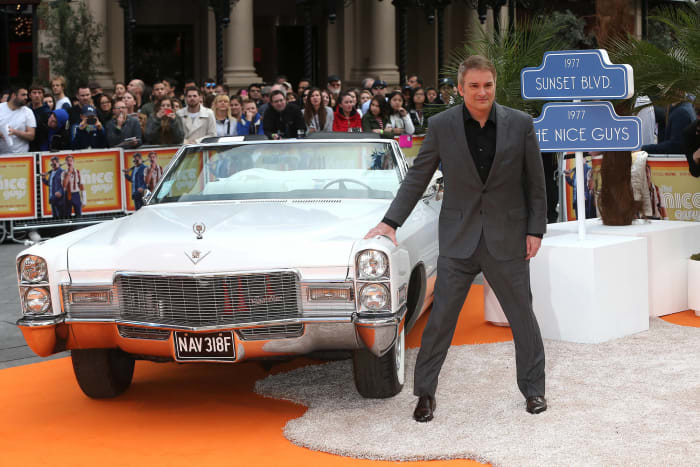
Shane Black probably wasn’t terribly concerned about Oscars back when he was pulling down millions of dollars for spec scripts during the 1990s, but now that he’s earning critical acclaim for non-blockbusters like “Kiss Kiss, Bang Bang” and “The Nice Guys," perhaps a little recognition would be, well, nice. He only codified the buddy-cop formula with “Lethal Weapon” while beating Tarantino to the referential pulp punch by six years. In case you’re wondering (and you should be), “Crash” won Best Original Screenplay in 2006. Its competition was “Good Night, and Good Luck,” “Match Point," “The Squid and the Whale” and “Syriana.” “Kiss Kiss, Bang Bang” dusts ‘em all.
Leigh Brackett

The story goes that upon reading Leigh Brackett’s detective novel “No Good from a Corpse,” Howard Hawks ordered his secretary to track down “this guy Brackett.” That he wound up with a lady Brackett didn’t stop him from putting her to work with William Faulkner on the screenplay for “The Big Sleep,” which is today considered one of the best noir films ever made. Brackett wrote several more classics for Hawks (“Rio Lobo," “El Dorado” and “Hatari!”), as well as “The Long Goodbye” for Robert Altman and an early draft of “The Empire Strikes Back," but she never earned a single Academy Award nomination.
Albert Brooks

It’s hard to think of a more influential comedy screenwriter over the last 40 years than Albert Brooks, but his lauded scripts for “Modern Romance,” “Lost in America” and “Defending Your Life” weren’t even nominated for Best Original Screenplay. He hasn’t written a screenplay since 2005’s egregiously underrated “Looking for Comedy in the Muslim World,” so put him on the long list of aging geniuses in dire need of an honorary Oscar.
Richard Curtis
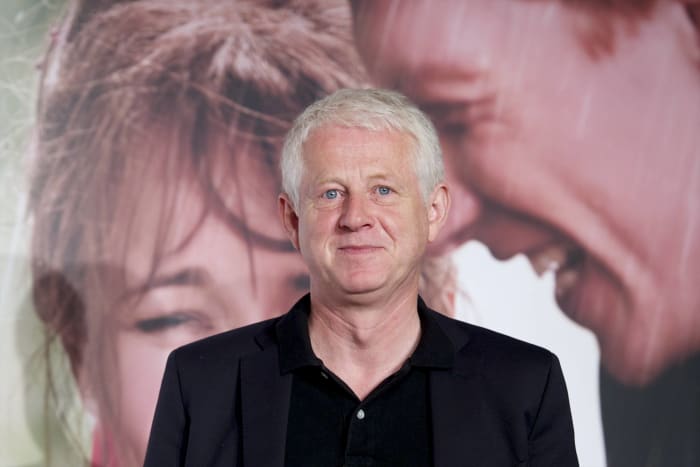
The modern-day master of the romantic comedy, Richard Curtis has been nominated only once: Best Original Screenplay in 1995 for “Four Weddings and a Funeral” (which he lost to Quentin Tarantino and Roger Avary for “Pulp Fiction”). His fans will make vigorous cases for “Notting Hill,” “Love Actually” and his work on the adaptation of Helen Fielding’s “Bridget Jones’s Diary,” but the Oscars aren't listening.
Nora Ephron

The daughter of Academy Award nominated screenwriters Henry and Phoebe Ephron (for “Captain Newman, M.D.”), Nora Ephron earned an Oscar nod for her first feature script (“Silkwood”) and had two more cracks at a win with “When Harry Met Sally…” and “Sleepless in Seattle." Ephron’s best screenplay is still her most underrated (“My Blue Heaven”), and the world has felt just a little bit less lovely since she passed away in 2012.
Buck Henry
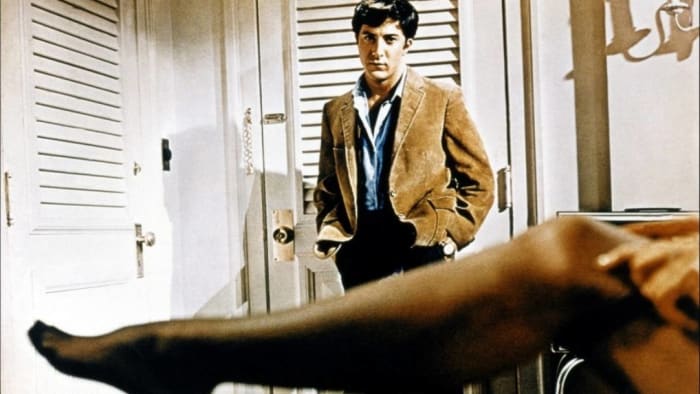
Buck Henry wrote three all-timers in “The Graduate,” “Catch-22” and “To Die For,” but he’s been nominated only once for Best Adapted Screenplay. Henry’s an interesting figure in Hollywood. He’s probably best known for his “Saturday Night Live” appearances during the show’s 1970s glory days, but among his peers he’s one of the most respected comedy writers of his time — not that the Oscars care all that much for comedy.
Nicole Holofcener

The relationship travails of women have rarely been authentically depicted in film because women have, proportionally, rarely been given the means to tell their stories in this medium. Nicole Holofcener is one of the few female writer-directors to break through in a major way over the last 20 years, and with movies like “Walking and Talking” and “Lovely & Amazing,” she’s one of the best we’ve got regardless of gender. She’s a familiar face at the Film Independent Spirit Awards, but she’s been completely ignored by the Oscars thus far.
Lawrence Kasdan

Lawrence Kasdan was on a hot streak in the early 1980s when he wrote “The Empire Strikes Back,” “Raiders of the Lost Ark” and “Body Heat.” Naturally, those films went without Academy Award nominations in the screenwriting department. Kasdan would eventually find his way to the Oscars thanks to his scripts for “The Big Chill,” “The Accidental Tourist” and “Grand Canyon,” but they were all passed over by the Academy.
Burt Kennedy

For a long time, the Westerns of Budd Boetticher were written off as low-budget programmers built around the medium-wattage star power of Randolph Scott. (But that doesn't mean he didn't work with the greats, like John Wayne and Ann-Margret.) A closer look revealed economically told moral tales about the emptiness of revenge worthy of the best of John Ford, Howard Hawks or Anthony Mann. Boetticher’s precise shot composition is always visually arresting, but the scripts by Burt Kennedy are master classes in plotting. You can convey an epic’s worth of emotion in 70 minutes if you know how to spin a yarn.
Krzysztof Kieslowski and Krzysztof Piesiewicz

Krzysztof Kieslowski had already announced his retirement from filmmaking when he received his first two (and only) Academy Award nominations for “Three Colors: Red,” the concluding chapter of his hue-coordinated trilogy. Working one last time with longtime collaborator Krzysztof Piesiewicz, it was the least the Oscars could do after ignoring the majesty of “The Decalogue” (initially televised in Poland, so eligibility might’ve been tricky) and “The Double Life of Veronique.”
Akira Kurosawa
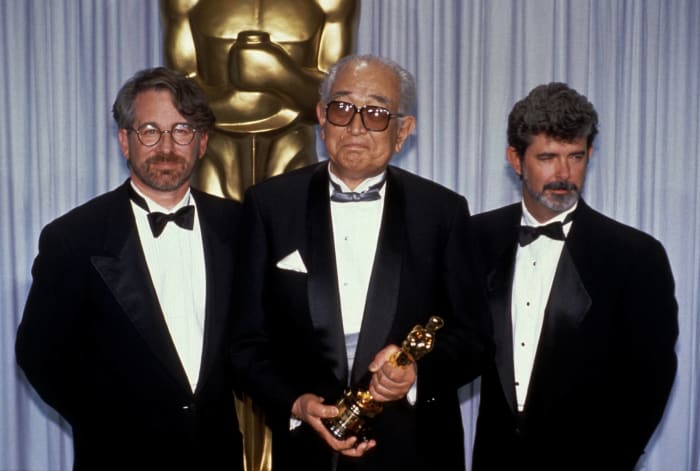
The legendary Japanese filmmaker is renowned as one of the medium’s premier visual storytellers, but it all starts on the page, and that’s where Kurosawa deserves much more praise as a craftsman. He has received one competitive Oscar nomination (Best Director for “Ran” in 1986), but in retrospect it’s insane that he didn’t get recognition for his screenwriting work (with multiple collaborators) on “Yojimbo,” “Seven Samurai” and “High and Low.” (Although the Academy did give him an honor Oscar for Lifetime Achievement Award in 1989.)
Charles Lederer
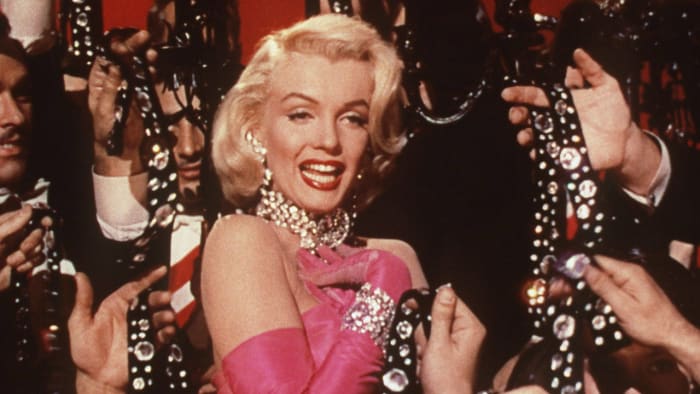
One of the most versatile screenwriters of Hollywood’s Golden Age, Charles Lederer’s filmography is littered with classics: “His Girl Friday,” “Gentlemen Prefer Blondes,” “The Thing” (1951), “Kiss of Death” (1947) and “Monkey Business.” Along with Ben Hecht, Charles MacArthur and Howard Hawks, he was one of the driving creative forces behind the “screwball comedy” genre. He was nominated for five WGA Awards and won a Tony for “Kismet,” but he was never once nominated for an Academy Award.
Spike Lee

The trailblazing African-American filmmaker wrote the definitive movie on race relations in America (“Do the Right Thing”) and has many other modern classics to his credit (e.g. “Malcolm X,” “She’s Gotta Have It” and “He Got Game”), but he’s been nominated for only one Best Screenplay Oscar. Lee appears to be a lock for his second nomination in 2019 with "BlacKkKlansman," (which he'll share with co-writers Charlie Wachtel, David Rabinowitz and Kevin Willmott). Could this be his year?
Barry Levinson
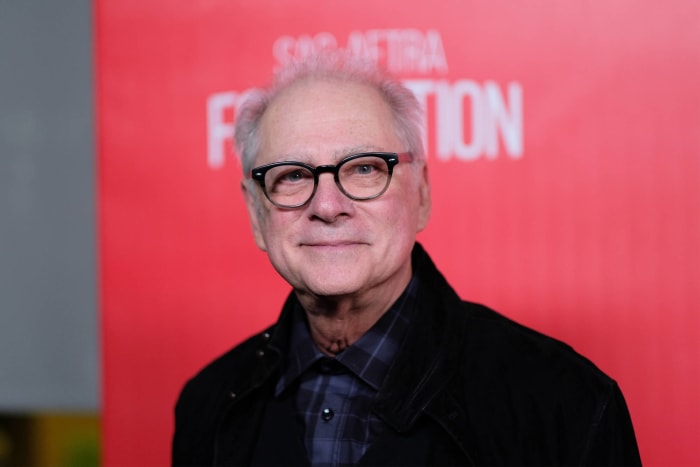
Few screenwriters are more respected by their peers than Barry Levinson, but the author of the Baltimore trilogy (“Diner,” “Tin Men” and “Avalon”) won his only Academy Award directing other writers’ material with “Rain Man.” He earned three Original Screenplay nominations (for “…and justice for all,” “Diner” and “Avalon”) but hasn’t been back to the Oscars as a competitor since 1992’s “Bugsy.”
Richard Linklater

The Austin, Texas auteur was 15 years into his filmmaking career when the Academy finally got hip to his laid-back genius by giving him a Best Original Screenplay nomination for “Before Sunset” — a sequel, no less! He was back at the Dolby Theatre in 2014 for the third film in that series, “Before Midnight,” and again the following year with “Boyhood.” With more younger artists, who grew up on the “Before” films and “Dazed and Confused,” entering the Academy’s ranks, Linklater’s day will come.
David Lynch

American cinema’s pre-eminent purveyor of psychosexual nightmares has never gotten the love he deserves in the screenwriting category. Of his four Academy Award nominations, only one has been for scripting (Best Adapted Screenplay for “The Elephant Man,” which he shared with co-writers Christopher De Vore and Eric Bergren). While it’s understandable that voters focus on his directing, Lynch is every bit the visionary on the page.
David Mamet
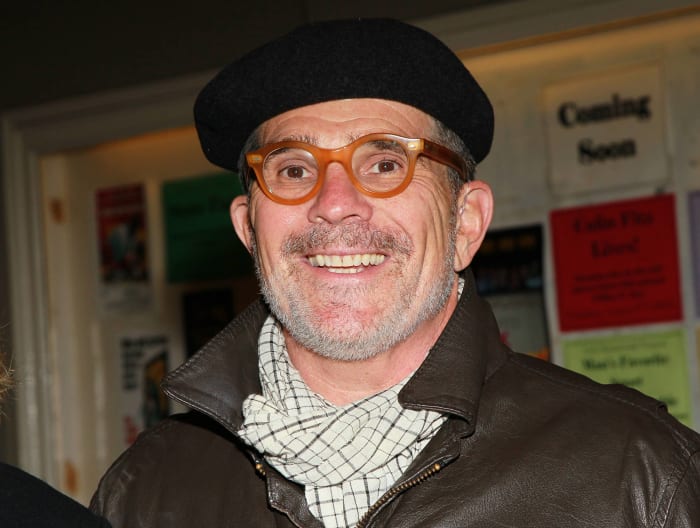
The dramatist’s dramatist, David Mamet has influenced countless screenwriters thanks to his plays and screenplays for “Glengarry Glen Ross,” “House of Games” and “The Untouchables." He’s been nominated only twice (for “The Verdict” and “Wag the Dog”), but it’s been a good 20 years, and he’s since fallen out of favor in Hollywood stylistically and politically. His time has probably come and gone, but you can hear echoes of his writing in several of this year’s nominees.
Elaine May

The one-time comedy partner of Mike Nichols, Elaine May established herself as one of Hollywood’s top comedy filmmakers in the 1970s with “The Heartbreak Kid,” “A New Leaf” and “Mikey and Nicky.” She was a credited writer on “Heaven Can Wait” (1978) and “Primary Colors," both of which were nominated for Academy Awards. Today she’s considered a legend and one of the most important woman directors in Hollywood history. She’s long overdue for an honorary Oscar, but that has yet to be proffered.
David Webb Peoples

The author of three masterful screenplays (“Blade Runner," “Unforgiven” and, with his wife, Janet, “Twelve Monkeys”), you’d think David Webb Peoples would have more than a single Academy Award nomination to show for it. But his script for “Unforgiven” lost the 1993 Original Screenplay Oscar to Neil Jordan’s superlative “The Crying Game." Peoples has been quiet since the 1998 bomb “Soldier,” but anyone capable of writing those three aforementioned movies should never be considered down for the count.
Paul Schrader

This one’s a head-scratcher. Paul Schrader’s credits include “Taxi Driver,” “American Gigolo,” “Raging Bull,” “The Last Temptation of Christ” and “Affliction” (for which James Coburn won a Best Supporting Actor Oscar), but he’s never been so much as nominated for an Academy Award. You might think his penchant for dark dramas about psychologically tormented (or flat-out abusive) individuals is a turnoff to voters, but those movies didn’t go lacking for nominations in other categories. He has his best shot at an Original Screenplay nomination in more than a decade with "First Reformed," but his chances took a hit when the script failed to get a nod from the WGA.
Cesare Zavattini

Foreign-language screenplays infrequently make the cut at the Oscars, but when you’re writing one undeniable masterpiece after another, the Academy will take notice. Working in tandem with director Vittorio De Sica, screenwriter Cesare Zavattini earned Best Original Screenplay nominations for the Italian neorealist classics “Shoeshine” and “The Bicycle Thief” and a nod in the since-eliminated Motion Picture Story category for “Umberto D.” Which film’s script was deemed superior to “The Bicycle Thief” in 1950? Why that would be Joseph L. Mankiewicz’s forgettable mediocrity, “A Letter to Three Wives.”
ZAZ (David Zucker/Jim Abrahams/Jerry Zucker)

Look, no one’s surprised or outraged that “Airplane!” wasn’t nominated for Best Adapted Screenplay (and it would’ve certainly fallen into that category due to its shameless incorporation of elements from the 1950s disaster film “Zero Hour!”), but have you ever encountered a tighter and funnier comedy script? You have, actually. It’s called “Top Secret!,” and it was the next movie from the filmmaking trio of David Zucker, Jim Abrahams and Jerry Zucker aka ZAZ. They have only two other screenplay credits as a group (“Kentucky Fried Movie” and “The Naked Gun: From the Files of Police Squad!”), and, you know what, maybe they’re too good for Oscars!
Jeremy Smith is a freelance entertainment writer and the author of "George Clooney: Anatomy of an Actor". His second book, "When It Was Cool", is due out in 2021.
More must-reads:
Trending in Entertainment
Customize Your Newsletter
 +
+
Get the latest news and rumors, customized to your favorite sports and teams. Emailed daily. Always free!
Use of this website (including any and all parts and
components) constitutes your acceptance of these
Terms of Service and Privacy Policy.

